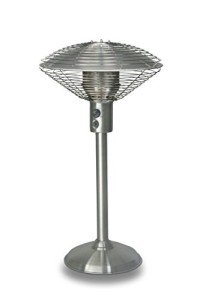Understanding Gas Heaters: A Comprehensive Guide
Gas heaters are a vital component of many homes, offering heat and comfort throughout the cooler months. With different kinds of gas heaters readily available, comprehending their performance, advantages, and precaution is vital for users. This short article supplies a helpful summary of gas heaters, how they work, and addresses often asked concerns on the subject.
Comprehending Gas Heaters
Gas heaters operate by burning gas or propane to produce heat. They are used to warm indoor spaces and are frequently considered more efficient than electric heaters. The main types of gas heaters include:
Types of Gas Heaters
| Type | Description |
|---|---|
| Gas | Connected to a gas line and supplies constant heat supply. |
| Propane | Uses propane tanks, making it suitable for areas without gas lines. |
| Unvented | Burns gas without a vent system, ideal for well-ventilated spaces. |
| Vented | Expels combustion gases outside, perfect for preserving indoor air quality. |
Each type has its distinct advantages and applications, making them appropriate for different environments and preferences.
How Gas Heaters Work
Gas heaters generally make use of a combination of burners, heat exchangers, and blowers to distribute heat effectively. The process typically includes:
- Ignition: Natural gas or propane is fired up either via a pilot burner or an electronic ignition system.
- Combustion: The gas burns, creating heat which is then moved to a heat exchanger.
- Heat Distribution: A blower or fan distributes the heated air throughout the space, creating a comfy environment.
- Exhaust: In vented systems, exhaust gases are expelled outside, preserving security and preventing poisonous accumulation indoors.
Benefits of Gas Heaters
Gas heaters offer various benefits that make them a popular option for heating spaces. A few of the key advantages include:
- Energy Efficiency: Gas heaters typically supply more heat per system of fuel compared to electrical heaters, making them an economical heating option.
- Quick Heating: They warm up spaces quickly, providing immediate warmth when switched on.
- Environmentally Friendly: Natural gas is cleaner than coal and is thought about a more eco-friendly choice than electrical heating in lots of areas.
- Dependability: Gas heaters can continue to operate during power blackouts, making sure continued comfort during severe weather condition.
Disadvantages of Gas Heaters
While gas heaters have lots of advantages, there are also some drawbacks to think about:
- Installation Cost: The preliminary installation cost for gas lines or propane tanks can be high.
- Security Risks: There are inherent risks related to gas leakages and carbon monoxide gas poisoning, necessitating careful setup and upkeep.
- Space Requirements: Some kinds of gas heaters (especially vented ones) need substantial space for installation and exhaust systems.
Upkeep Tips for Gas Heaters
Proper upkeep is essential for making sure the security and performance of gas heaters. The following ideas can help keep optimum performance:
- Annual Inspections: Have a certified professional check the gas heater every year to examine for leakages and make sure proper functionality.
- Clean the Heater: Regularly clean the heater and surrounding location to prevent dust accumulation, which can impact efficiency.
- Check Vents: Ensure that all vents are unobstructed and working correctly to avoid buildup of harmful gases.
- Display for Smells: Any unusual smell, especially gas, ought to be resolved right away by getting in touch with a professional.
FAQs about Gas Heaters
Q1: Are gas heaters safe to utilize inside?
Yes, gas heaters can be safe for indoor usage as long as they are properly set up and maintained. Vented gas heaters are particularly safe due to the fact that they expel combustion gases outside, minimizing the danger of carbon monoxide gas poisoning.
Q2: How can I inform if my gas heater has a gas leakage?
Indications of a gas leakage consist of a nasty odor looking like rotten eggs, hissing noises, and dead plants around the area. If you believe a gas leak, it is important to leave the premises immediately and call your gas company.
Q3: Do gas heaters need a source of power?
Most gas heaters do not require electrical power to operate, especially those that rely on gas. Nevertheless, designs with fans or electronic ignition systems will require a power supply.
Q4: What should I do if I smell gas near my heater?
If you smell gas, you need to right away leave the area, avoid utilizing any electrical devices, and call your gas service supplier or emergency services from a safe distance.
Q5: What is the lifespan of a gas heater?
Generally, gas heaters have a life-span of 10 to 15 years with correct upkeep. Regular inspections can help extend their functional life.
Gas heaters can be an efficient and trusted method to keep homes warm and comfy during cold weather months. Gas Patio Heaters Uk and benefits accommodate various requirements and preferences. Nevertheless, comprehending their performance, prospective safety issues, and upkeep requirements is crucial for any property owner considering or currently utilizing gas heating. By following best practices and staying informed, users can take pleasure in the heat and effectiveness of gas heaters for many years to come.

